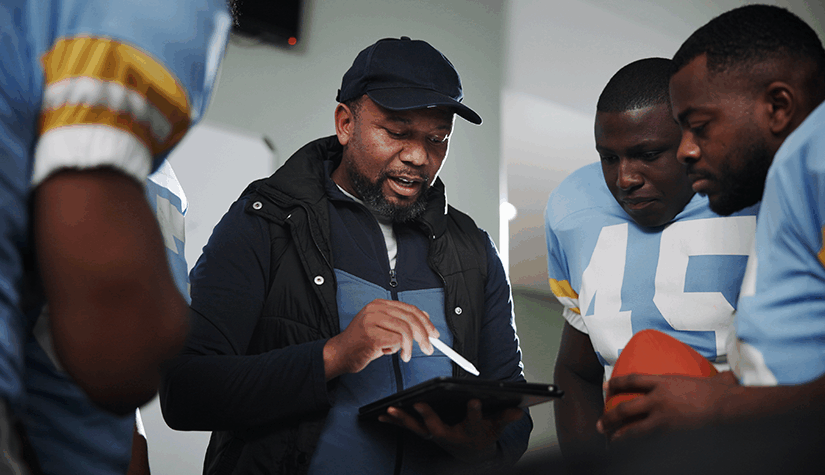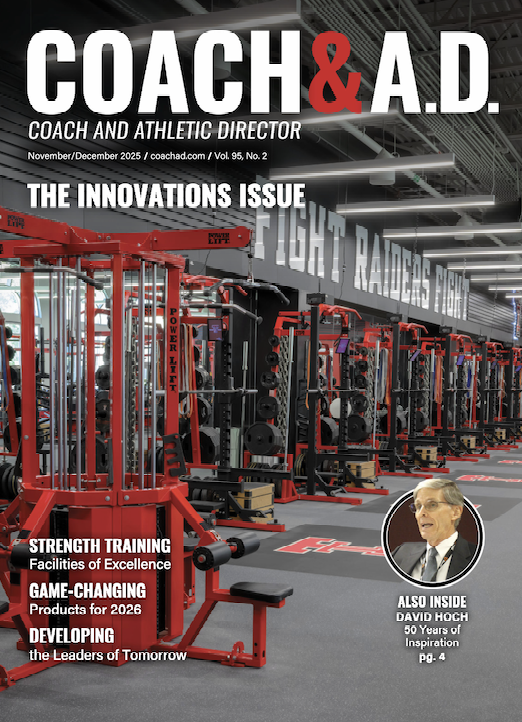Dealing with the COVID-19 pandemic
The horrific COVID-19 novel coronavirus pandemic crisis, which has engulfed a good portion of the world, is also having a huge impact upon education and, obviously, athletic programs. Schools have closed in many states and this means putting the spring season on hold and, in some cases, perhaps in jeopardy of being canceled entirely. Needless to say, most have never faced a situation like this before. Beyond being tragic, this major health issue is also highly unique.

While many athletic administrators may have emergency plans for their various venues in order to cover a variety of developments and situations, chances are good that these preparations may not help a lot concerning the ramifications of a pandemic. Also, you are basically on the receiving end of many decisions from governors and state departments of education which are totally out of your control.
With this in mind, the following are a few thoughts and considerations which may help with the challenges of dealing with this critical situation.» RELATED: High school officials feeling impact of coronavirus sports stoppages
- Monitor the latest developments and directives issued in your state and locality. Even if you are sitting at home, and this may very well may the situation, this is a vital step for you to take. The reason that this effort is critical, because it will be up to you to communicate with and keep your coaches, athletes and parents informed. This is an important responsibility.
- Use your existing methods and vehicles for communicating with the constituents involved in your program. These might include email distribution lists, phone blasts, Facebook, Instagram, Twitter or notices posted on your website. Use as many of these mediums as possible in order to reach the largest and broadest number of individuals. Make sure that all vital information is disseminated in a timely fashion which should help resolve apprehension and perhaps fear.
- Indicate in your messages when you expect to issue the next update. While you don’t have to be specific down to the precise minute of your next statements, you don’t want apprehension to build. Even if your updates occur in 6 to 8 hours, everyone knows and can expect the latest information.
- Remind your coaches that when there is no school, there will be no practice sessions. While this is a common expectation for many districts in the event of inclement weather and natural disasters, this step is critically important with this pandemic. Social distancing is one of the prescriptive and effective actions in order to combat this virus.
- Clearly and firmly explain to your coaches that captains or upperclassmen also cannot gather teammates for off-campus workouts or practice sessions. Even though teams should not be using school facilities or equipment for workouts during this crisis, athletes should also not meet on their own in a group. In addition to trying to mitigate the spread of the virus, the risk of injury during team activities in which a coach is not present has to be avoided. Without supervision, proper equipment and well-designed practice sessions, the risk is much too great and cannot be allowed.
- Submit the proper work orders or requests, or whatever procedures are employed in your district, and have your custodians thoroughly clean and disinfect the locker rooms. This step should also include weight rooms, equipment and storage areas. During the time in which schools are closed is an important point to accomplish this proactive and preventative measure.
» ALSO SEE: Tips for keeping facilities clean, athletes healthy
- Reach out to colleagues to share and explore best practices that they may be utilizing during this challenging time. There may be some beneficial steps and approaches which have already been instituted which could also work well in your setting. And it just takes a phone call or email in order to advance your efforts.
- Encourage your coaches to reach out — via phone or e-mail — to their student-athletes with the offer of helping with the college recruiting process. With fewer games or perhaps a season cancelled, seniors especially may need a little extra attention and assistance. Even from home, a coach can send letters of recommendation, game films and make some phone calls to college coaches.
- Consult and reinforce with your coaching staff that while athletics is important to them and their athletes, missing some games is part of a greater strategy of helping the community. Actually, there are some extremely valuable teachable moments which can be drawn from this difficult and tragic development and wise coaches should use them.
- Make sure that you follow all of the recommendations such as frequently washing your hands, avoiding groups of more than 10 people and quarantining yourself if you show any symptoms. This should be done not only for your own safety, but to also serve as the role model for what should and needs to be done by everyone in your program.
- Try to project and serve as a steading, calming and positive influence for everyone associated with your program. While you naturally may have your own concerns and worries about your family and other issues, athletes, parents and coaches need assurances that everything is being done as best as possible. While there may be some disruptions with the mitigating steps which have to be taken, everything will eventually improve. You have to be the reassuring voice.
- Consider working ahead and attacking projects such as revising handbooks, policies and procedures which need to be done and usually take valuable time. Anything that you can do in a proactive manner will help when you do finally get back to school and you then have to tackle the immediate issues caused by the postponements or cancelations. Use your time wisely and constructively, and it will pay dividends in the future.
There is no doubt that the Coronavirus has had a huge, disruptive effect upon education and athletic programs. This is also a time in which the school community needs your strength and leadership. Carefully thinking through all aspects and effectively communicating what is happening in an efficient manner can help greatly. Remind everyone to listen to the recommendations, stay safe and together the challenge will be met.
David Hoch, CMAA, has 16 years of experience as a high school athletic director and served for 12 years as the executive director of the Maryland State Coaches Association. In 2000, he was named Athletic Director of the Year by the Maryland State Athletic Directors Association. His column, A.D.ministration, focuses on issues in athletic administration and appears regularly in Coach & Athletic Director magazine.





